Trumplomacy: Under-fire Tillerson's quiet diplomacy in Syria
- Published
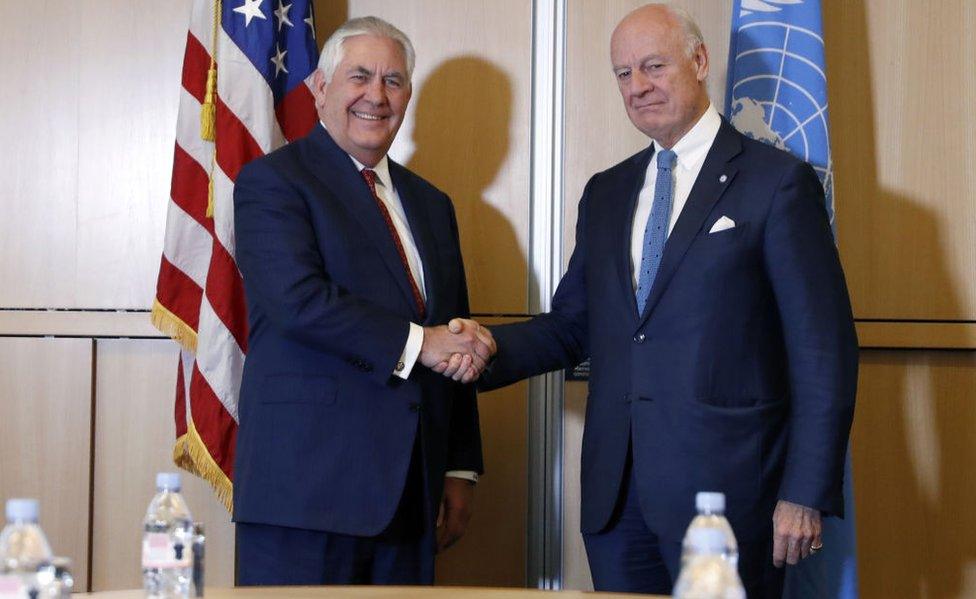
Mr Tillerson met with UN Syria envoy Steffan de Mistura in October
Amidst a now deafening chorus of criticism about Rex Tillerson's (mis)management of the Us State Department, the secretary of state has engaged in quiet diplomacy with Russia to stabilise Syria.
"Quiet" because that is the nature of the man - the polar opposite of his predecessor John Kerry who conducted similar efforts with great public fanfare and intensity.
"Quiet" also because it's now Russia that's making all the noise.
Having helped the Syrian President Bashar al-Assad win the war - if not all the remaining battles - Russian President Vladimir Putin is leading the drive for peace that seems likely to favour the victor.
For that, though, he needs a US buy-in, because American rebel allies control swaths of Syrian territory, and because Mr Putin doesn't want to be saddled with the cost of rebuilding the country.
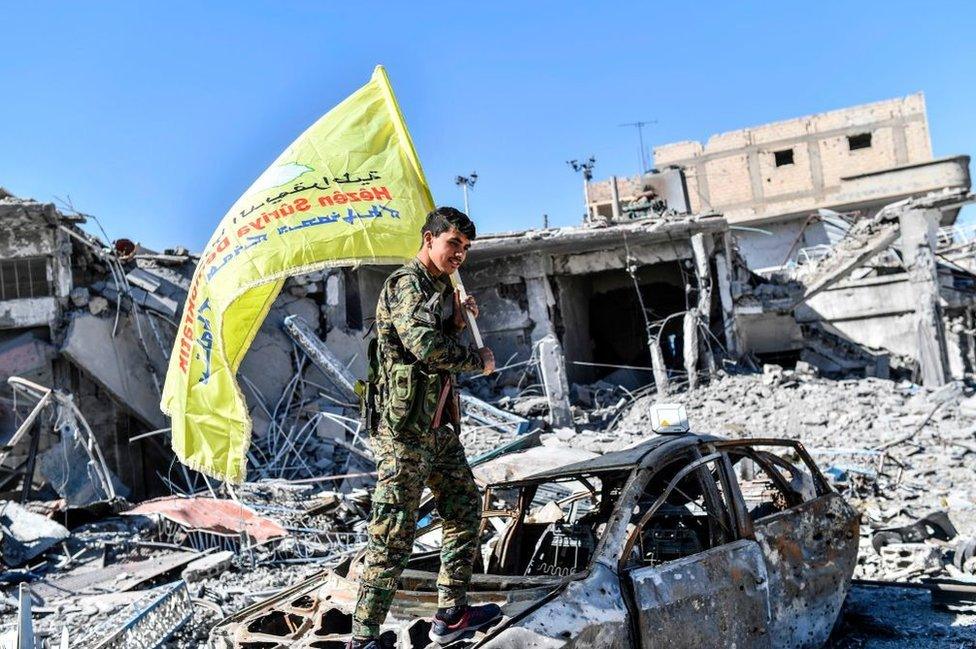
US-backed Syrian Democratic Forces held flags in Raqqa, the former IS capitol
Senior State Department officials felt they'd made progress in an agreement between President Trump and the Russian leader announced earlier this month, external.
In particular, they pointed to Mr Putin's commitment to the UN blueprint for a political transition that established the framework for multiple rounds of so far fruitless negotiations in Geneva.
This was "probably the clearest articulation by the Russian president to date that (the Security Council Resolution) is a roadmap for the political process," said one of the officials.
"Secretary Tillerson felt that it was quite important to get President Putin on the record in this regard," the official added, given that parallel Russian meetings with Iran and Turkey aimed at shaping a political settlement, he said, might be "easier for the (Syrian) regime to manipulate".
MAPS: Islamic State and the crisis in Iraq and Syria
US diplomat leadership cuts raise concerns
The UN process has dropped all preconditions, including the demand for Assad to step down. The Obama administration had also done so, although it said there needed to be an eventual "transition away" from the Syrian leader.
Now the formula simply mentions a new constitution and UN-supervised elections that would include the millions of Syrians driven out of the country by the war.

The French ambassador to Lebanon poses with Syrian refugees on their way to Paris
Would the refugees vote for Assad?
"I think that's what changes the future of Syria," said another senior State Department official. "My view is the Syrian people are going to decide they want different leadership."
He said the Americans envisaged a power-sharing arrangement between Syria's main sectarian groups, similar to the one in Iraq.
Western countries are using as leverage the promise of international reconstruction aid, withholding it until there is a political resolution to the conflict.
But it's still far from clear that Bashar al-Assad would give up even some of his power when he's winning what he sees as a struggle for his survival.
He continues to push for total military victory while the opposition sticks to its demand that he leave.
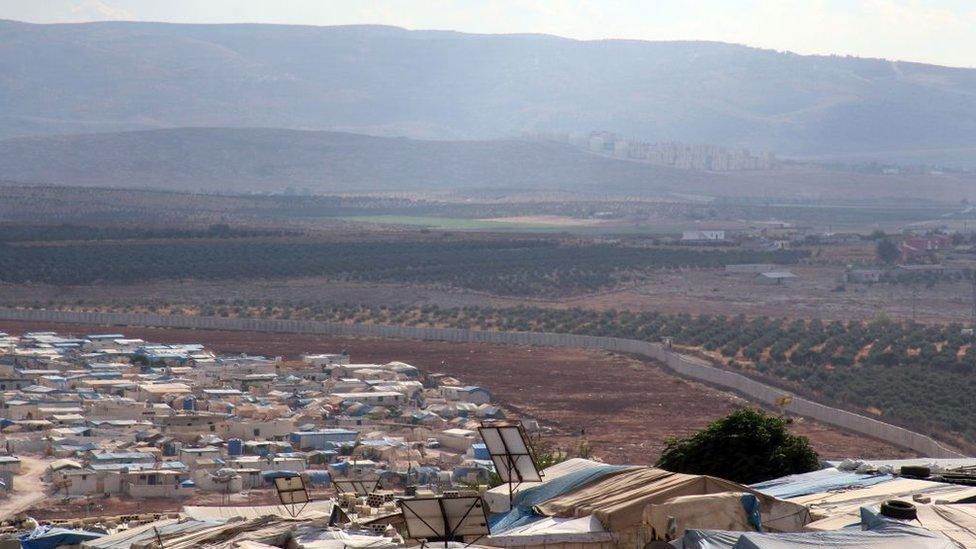
Millions of people have been displaced by fighting in Syria and Iraq
The argument about reconstruction aid might be more compelling for Russia, but the US is only one of the outside powers that Mr Putin has to satisfy.
Chief among those is Iran, which has the biggest non-regular army in Syria and is watching with suspicion any attempt to role back its influence.
The US State Department officials said Russia had agreed to ensure the departure of Iranian forces and Iranian-backed militias from a ceasefire zone in the southwest that borders Jordan and Israel.
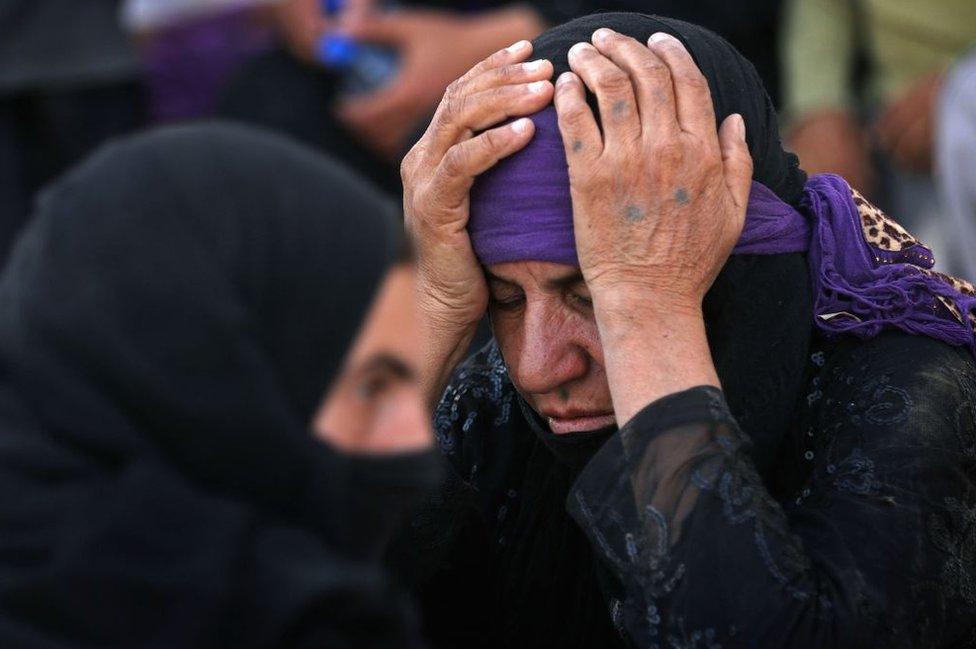
Will refugees get to vote in a future Syrian election?
But that hasn't reassured Israel, or the American Congress - critics see Syria as an own-goal for Tillerson and President Trump. They say the administration has ceded control of the country to Tehran, external despite its policy to push back Iranian power in the region.
Indeed, America's laser focus on combating the so-called Islamic State left Russia and Iran to determine the outcome of Syria's civil war, an approach begun under the Obama administration and adopted by Mr Trump.
But now that IS is on the run, the Americans are making an attempt to come from behind. The military is going to stay on for a bit, to "set the conditions for a diplomatic solution," Defense Secretary James Mattis said recently.
Even if the US is not holding many cards, its military presence prevents Assad from retaking most of the rest of the country, which would benefit Iran more than Russia.

More on the Syrian civil war
- Published17 October 2017
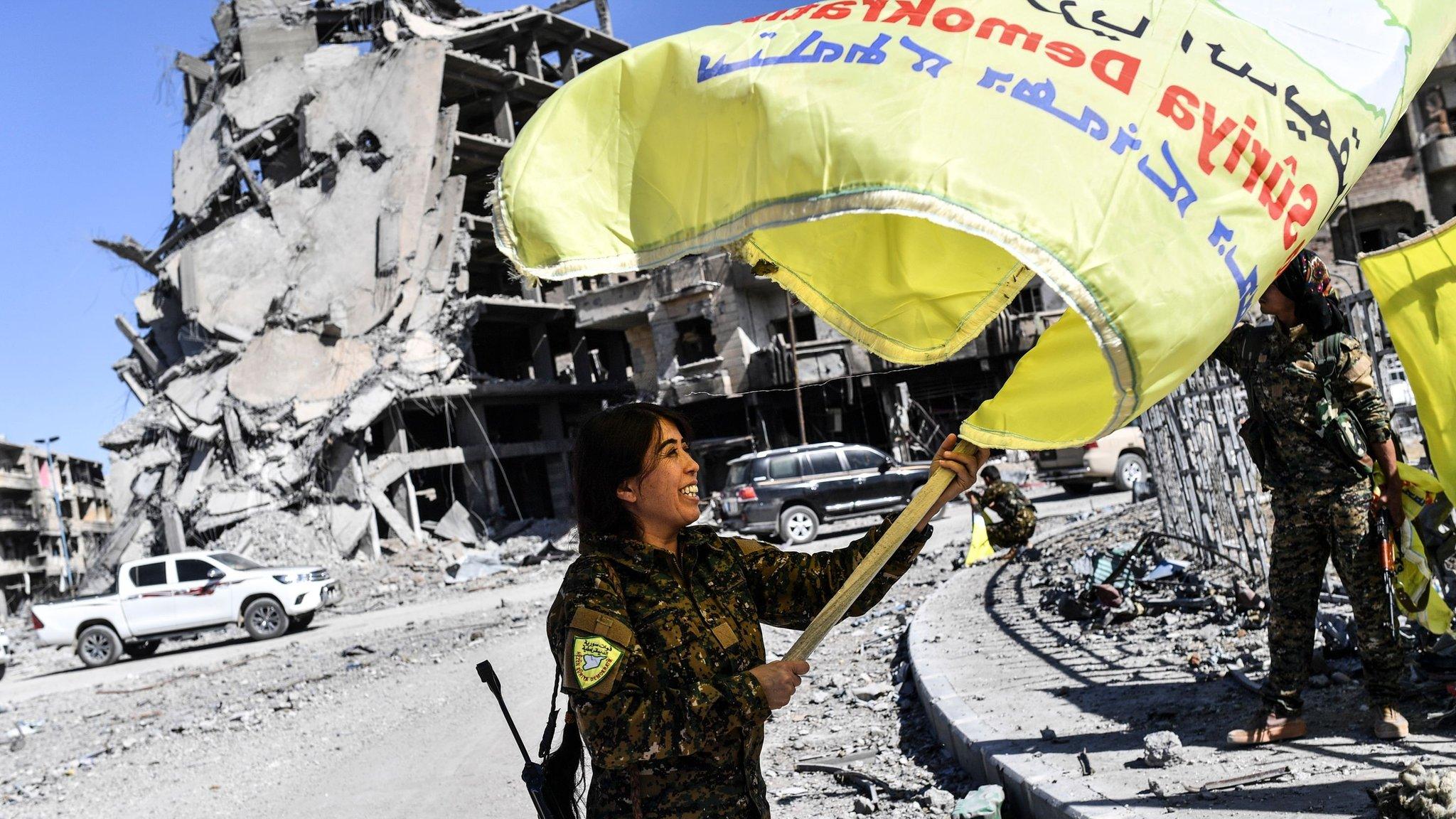
- Published28 March 2018
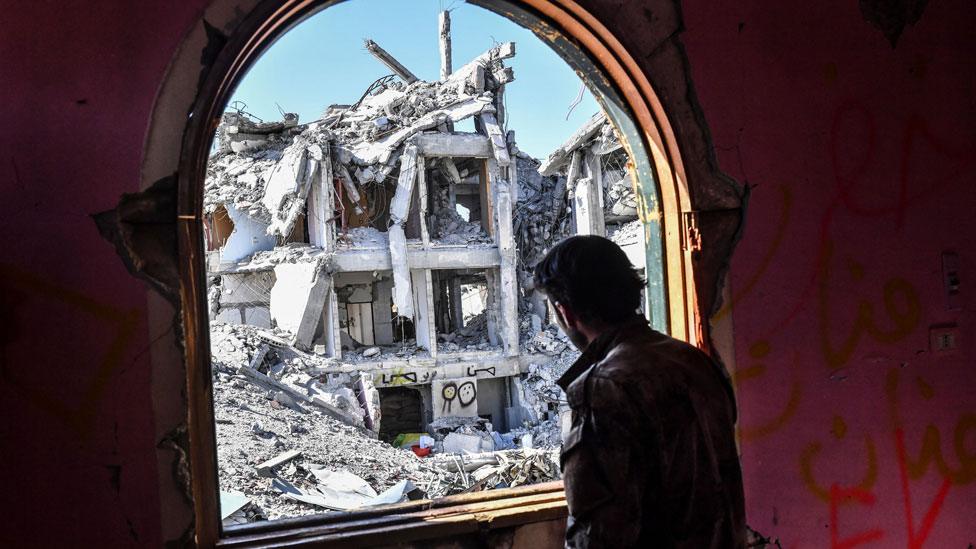
- Published27 November 2017